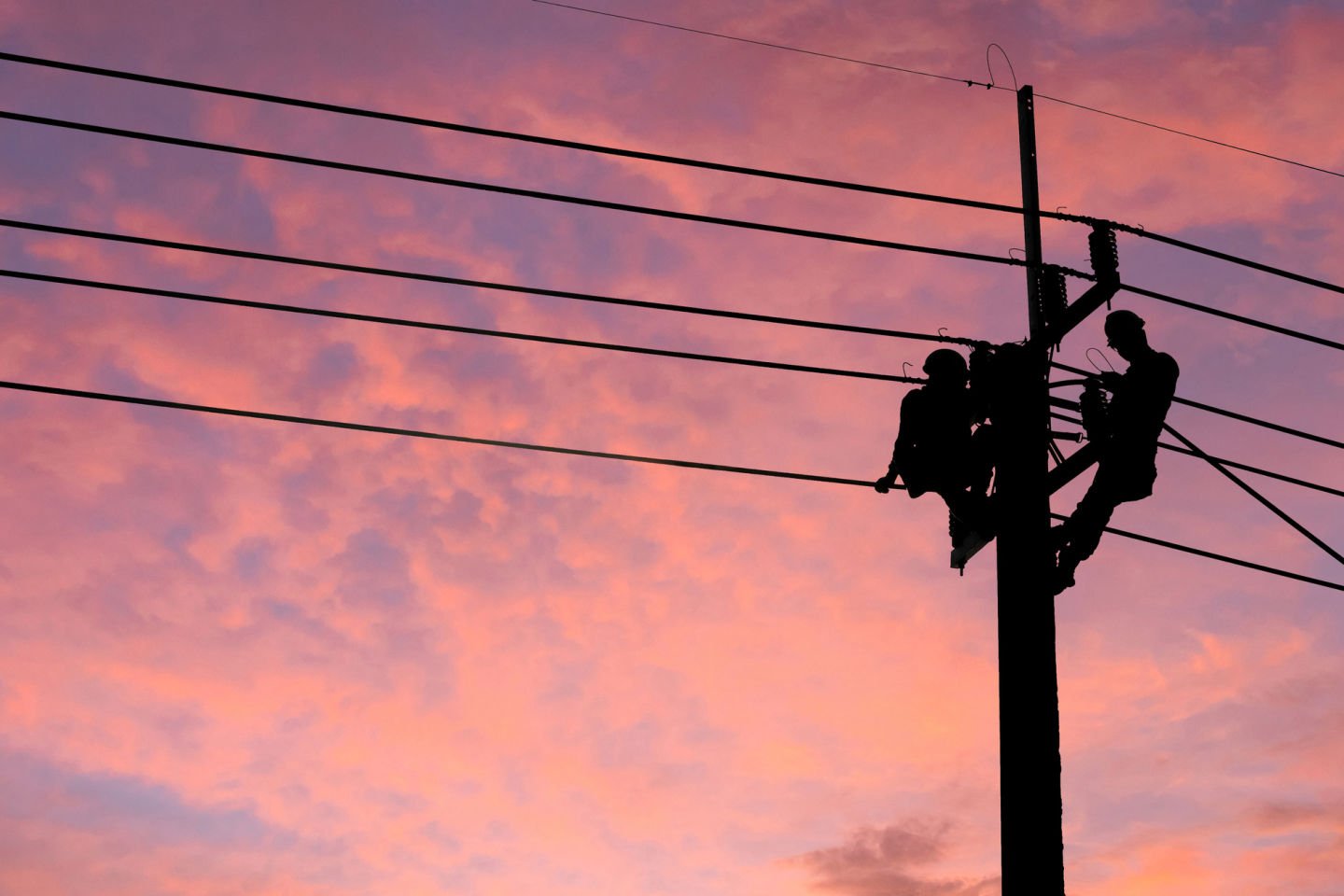Unsung heroes of natural disasters
We rightly praise the first responders, but others also work hard to restore essential services after extreme weather events.

Important links and phone numbers
In a life-threatening situation, call the police, ambulance, or fire service on 000.
To contact the State Emergency Service, call nationwide 132 500, or visit:
Australia has dozens of network providers for electricity and gas. Information on your local provider can be found here.
The Salvation Army (13 72 58) can offer practical assistance, and if you need someone to talk to, contact Lifeline (13 11 14).
Just before Christmas, Cyclone Jasper and subsequent flooding did their best to disrupt seasonal celebrations in Far North Queensland.
On and around Christmas Day itself, wild storms and flooding hit parts of South East Queensland, downing trees, flooding homes, and bringing down power lines.
In the first few days of the New Year, wild storms with driving rain and large hailstones swept through large parts of Victoria, including Bendigo, Ballarat, Castlemaine, and greater Melbourne, fuelling floods that have continued to wreak havoc into this week.
Other parts of Australia have seen heavy rains, and the threat of bushfires remains very real throughout large parts of the country before summer is out.
If you haven’t faced an extreme weather event over the past few weeks, you should consider yourself lucky – but you should also be prepared for that eventuality. Even if you have weathered a storm or two, remember that lightning can strike twice in the same place.
Here is some advice on what to do in the lead-up to and immediate aftermath of extreme weather.
Smart way to donate
If you are thinking of helping those affected by a natural disaster, consider whether your donation is appropriate for the circumstances.
Charities often receive donations that don’t meet their needs and dealing with them becomes a hindrance rather than a help.
Peak body Givit works with governments and charities to determine exactly what is required by people in emergency situations, so they are not wasting time and money on processing unsuitable items.
On its website, Givit lists the actual requirements of people in distress – from gift vouchers to physical items such as kettles, socks, school stationery, and much more – and can arrange for them to be sent directly to the person or family in need.
Along with risks to your life and the prospect of damage to your property, you may also face longer-term issues such as electricity, gas, phone, and internet outages, and disruptions to the drinking water supply and sewage system.
Working alongside police, fire officers, paramedics, and SES volunteers in these situations are workers from the utility companies and local council tasked with reconnecting essential services. In some areas, Australian Defence Force personnel are assisting.
Electricity supply network workers have a dangerous job under normal circumstances, and that danger is multiplied when they are working in the rain, or in flooded areas, dealing with downed pylons and live wires.
Danny Donald, from South East Queensland energy network operator Energex, explained the difficulty of the work in an interview with the ABC.
He said most major power outages involve damaged equipment and the extended Christmas blackouts on the Gold Coast were caused by severe, widespread storm damage.
“Our priority is getting power back to as many people as possible, as quickly as we can,” Mr Donald said during the clean-up.
“Crews initiate ‘make-safe’ operations which involve getting powerlines off the roads and making it safe for repair operations.”
He said they then prioritised the “easy fixes” before tackling the more complicated jobs.
State Energy Minister, Mick de Brenni, told Sky News that power systems supplying properties in remote parts of Mount Tamborine and Jimboomba had to be completely rebuilt following the storms.
The slow progress – some properties remained without power for more than a week – was frustrating for some residents, but important work like this needs to be done safely and properly.
Even less fortunate than householders who went without power, were those whose homes were destroyed. They may have to wait a year or more before they can return.
What we also saw throughout these emergencies, as we often do in challenging times, was neighbours pulling together to help each other.




